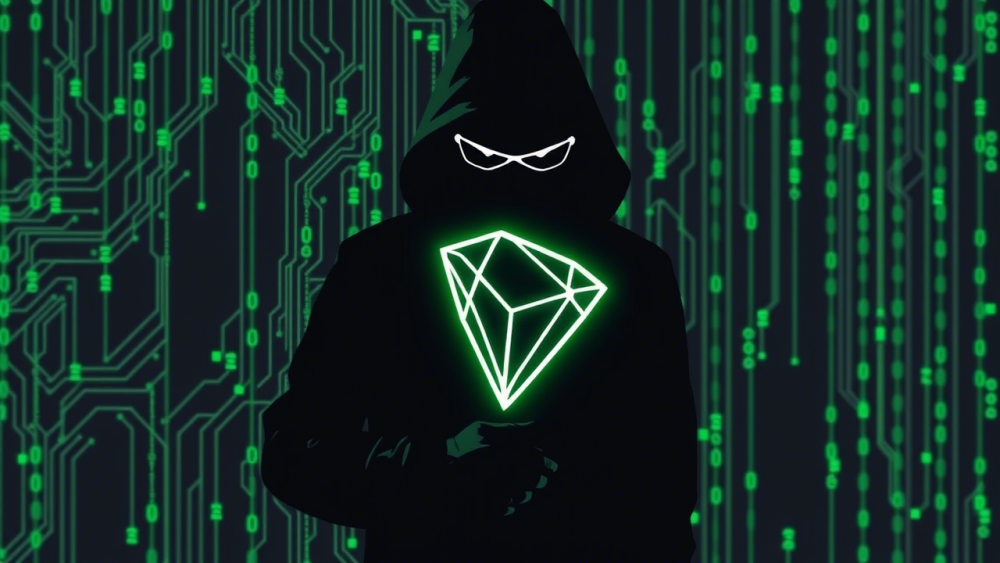The Unfolding of a Cybersecurity Catastrophe
In April 2025, the digital asset world was shaken when news broke that North Korean hackers had orchestrated a massive phishing attack against TRON users. In just a single day, more than $137 million in TRC20 tokens was siphoned from unsuspecting users. This event underscored the urgent need for custody solutions for TRC20 tokens and highlighted the vulnerabilities that many individuals and businesses still face when it comes to digital asset security.
The group behind the attack, identified as UNC3782, executed a highly coordinated campaign. By creating fraudulent websites that perfectly mimicked legitimate TRON interfaces, they lured users into connecting their wallets and approving malicious transactions. Unlike traditional hacks that exploit code vulnerabilities, this attack targeted the weakest link: human trust. Once users connected their wallets to these counterfeit platforms, sophisticated drainers were triggered, and the assets were transferred within moments to wallets controlled by the attackers.
The speed and precision of the operation left little room for recourse. Once the transactions were confirmed on the blockchain, they became irreversible. Within hours, personal and business wallets holding substantial amounts of TRC20 tokens were emptied, dealing a devastating blow not only to individuals but also to the trust in the broader TRON ecosystem.
Security Vulnerabilities That Made the Attack Possible
The TRON network itself was not compromised at a technical level. Instead, the attackers exploited a combination of poor wallet security practices, the absence of multi-layer authentication, and the widespread reliance on hot wallets for managing significant TRC20 holdings.
Hot wallets, while convenient for day-to-day transactions, are inherently vulnerable due to their constant connection to the internet. Without proper security infrastructure, they expose users to phishing and malware attacks. In this case, many victims lacked secure TRC20 storage practices and did not employ multi-factor authentication or transaction verification systems, leaving their assets perilously unprotected.
Another crucial vulnerability was the users' reliance on visual trust cues alone. The fake websites employed HTTPS certificates, professional designs, and even replicated official TRON branding. Without robust custodial services for TRC20 tokens, individuals were left to fend for themselves against a highly organized, state-sponsored cybercrime unit.
How This Attack Impacted the TRON Ecosystem
The financial loss was immediate and staggering, but the psychological impact on the TRON community was equally severe. Users questioned the safety of the network, and investor confidence took a noticeable hit. Transaction volumes decreased, and market prices wavered amid the uncertainty.
Moreover, the attack triggered increased scrutiny from regulatory bodies, pushing discussions about mandatory security standards for blockchain platforms and service providers. It became clear that for blockchain ecosystems to mature and thrive, robust Vault solutions for TRON assets must become the norm rather than the exception.
Why Vaultody Tron Custody Solutions Are Essential for TRC20 Token Safekeeping
Vaultody's custody solutions for TRC20 tokens present a direct answer to the vulnerabilities exposed by this incident. At the core of Vaultody's service is a multi-layered security framework that eliminates single points of failure.
Vaultody employs secure TRC20 storage through a combination of multi-party computation (MPC) and hardware security modules (HSMs). This ensures that private keys are never stored in a single location or exposed to the internet, making unauthorized access virtually impossible. Each transaction initiated through Vaultody Tron custody solutions must pass multi-factor authentication checks and multi-signature approvals, significantly reducing the risk of phishing-based compromises.
For institutions managing large digital asset portfolios, Vaultody offers institutional TRC20 wallet services designed to provide operational flexibility without compromising security. Features such as customizable user permissions, real-time transaction monitoring, and anomaly detection ensure that any unauthorized attempt to move assets is immediately flagged and halted.
Had the victims of the April 2025 attack utilized Vaultody's custodial services for TRC20 tokens, their assets would have remained secure. Vaultody's systems are specifically designed to neutralize the exact vectors exploited in this phishing operation.
Actionable Steps for TRC20 Token Holders to Enhance Security
In the wake of this major security breach, TRC20 token holders must prioritize security at every level. The first step is transitioning from hot wallets to institutional-grade custody solutions like Vaultody. Secure TRC20 storage minimizes exposure to online threats and ensures that even sophisticated phishing attacks cannot succeed.
Education and vigilance are also critical. Users must scrutinize every website they interact with, avoiding links from emails or messages and manually entering official URLs whenever possible. Multi-factor authentication should be mandatory on all wallet interfaces, and real-time alerts for any transaction initiation must be enabled.
Additionally, businesses and high-net-worth individuals should implement Vault solutions for TRON assets that include layered security, comprehensive access control, and 24/7 monitoring. A proactive approach to digital asset security will not only protect individual holdings but also contribute to the broader health and resilience of the blockchain ecosystem.
Strengthening the Future of TRON Asset Protection
The $137 million TRON phishing attack in April 2025 was a stark reminder of the evolving sophistication of cyber threats in the blockchain space. However, it also served as a catalyst for change, bringing attention to the urgent need for advanced custodial services for TRC20 tokens.
Vaultody stands at the forefront of this new era of blockchain security. By offering custody solutions for TRC20 tokens, secure TRC20 storage, and institutional TRC20 wallet options, Vaultody empowers users and businesses to take control of their digital asset security. In a world where cyberattacks are only growing more refined, choosing Vaultody for TRC20 token safekeeping is not just a precaution — it is a necessity.
Investing in secure custody today means protecting your digital future. Let Vaultody be your trusted partner in safeguarding your TRON assets against the threats of tomorrow.









 Copy link
Copy link